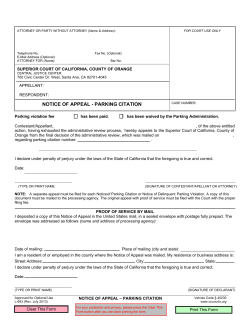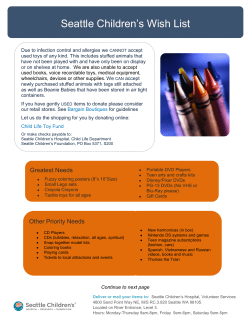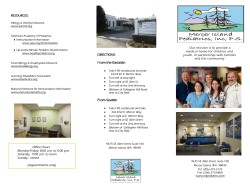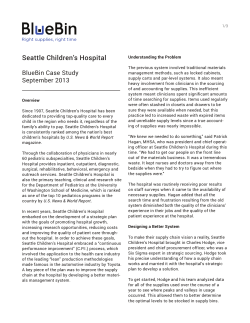
2013 Seattle Free-Floating Car Share Pilot Program Report
2013 Seattle Free-Floating Car Share Pilot Program Report Prepared by the Seattle Department of Transportation March 2014 Summary In December 2012, the Seattle City Council unanimously adopted legislation (Council Bill 117661; Ordinance 124063) to authorize a free-floating car share pilot program in which car share vehicles may park within a defined geographic area in the right-of-way rather than in an assigned space. The ordinance required that the Seattle Department of Transportation (SDOT) prepare a report on the pilot program after one year of operation. This report serves that function. The pilot program began operations in early 2013. Car2go, a subsidiary of Daimler AG, applied for and received 500 permits to use curb space throughout the city. Each permit is priced at $1,330, which includes $1,030 towards the cost of parking in paid areas, $200 towards the cost of parking in Restricted Parking Zones (RPZs), and a $100 administrative fee. In 2013, the operator’s use of metered on-street parking exceeded the estimated amount paid for in their initial permit, and the operator was responsible for paying an additional $183,365 in fees to the City. Consistent with the ordinance, these were paid in full at the end of February 2014. Throughout the first year of operations, the number of daily free-floating car share rentals has increased, with a current daily average of approximately 5 rentals per vehicle each day. Community responses to free floating car share have been generally positive, and car2go reports almost 35,000 members in the region. Several community and business organizations have expressed concerns about cars lingering in on-street parking spaces, making it difficult for customers to access store-front retail. While these concerns have come from a number of neighborhoods, there is a concentration from the South Lake Union area, where the operator’s use of metered spaces is highest. Data provided by the operator indicate that 20% of car2go’s total parking time in paid areas was in South Lake Union. It is important to note that car2go vehicles occupy less than 1% of the total paid parking 1 in the area. Car2go has conducted several member surveys, which indicate that 39% of members have given up a car or are considering giving up a car; that 35% of members are traveling fewer miles in personal vehicles; and that 39% are using their personal cars less often since joining car2go. Conversely 47% of members indicate that they now ride transit less frequently, and 63% of members report that they have not changed the number of miles they travel in a personal vehicle, even with car2go use. At this point it is unclear how free-floating car share is affecting broader transportation choices throughout the city. Because free-floating car share is one element of a larger multimodal transportation system, the ways in which people utilize each of these modes change as new options become available. In order to ensure that free-floating car share policies continue to promote citywide goals related to livability, connectivity, equity, and the environment, the City should consider developing an ongoing plan for evaluation and policy adaptation. The existing legislation allows SDOT to issue 500 free-floating car share permits annually. Car2go and several other car share operators have expressed interest in expanding that number. Should the number of free-floating car share permits change, it may be beneficial to tie that expansion to the provision of a city-wide service area. Other issues may also warrant consideration as demand for services and permit expansion requests are made. 1 Available paid parking time was calculated by taking the total number of paid spaces per area and multiplying that by the total annual hours of paid parking in an area. For SLU Main this calculation was: (1,792 paid spaces)*(10 hours per day)*(313 days per year (excludes Sundays)). 2013 Seattle Free-Floating Car Share Pilot Program Report Prepared by the Seattle Department of Transportation March 2014 Background In 2012, the Seattle City Council adopted Ordinance 124063 to authorize a free-floating car share pilot program in the city of Seattle. The ordinance required that the Seattle Department of Transportation (SDOT) prepare a report on the pilot program after one year of operation. This report serves that function and includes information on: Free-floating car share’s use of curb space in paid areas and restricted parking zones (RPZs) Community responses to free-floating car share Free-floating car share’s effect on auto ownership and transportation choices Free-floating car share pilot program policy considerations The 2012 pilot program legislation authorized 350 freefloating car share permits, priced at an annual cost of $1,330. The fee includes $1,030 towards the estimated cost of parking in paid areas, $200 towards the cost of parking in Restricted Parking Zones (RPZs), and a $100 administrative fee. In March, 2013, the Seattle City Council approved an additional 150 free-floating car share permits, establishing a new cap of 500 total permits. Car2go, a subsidiary of Daimler AG, applied for and received 330 permits at the beginning of 2013. They applied for an additional 100 permits in April 2013 and another 70 in August 2013. In April 2013, they extended their initial service area to include a larger portion of South Seattle and West Seattle (Map 1). As of the date of this report, car2go holds all 500 free-floating car share permits and is the sole operator of this service in Seattle. As a condition of the permit, the operator is required to report regularly on curb space use and to prepare a report to SDOT summarizing findings from their annual membership survey. This report includes that data, as well as additional information on community feedback received by SDOT on free-floating car share in Seattle. Free-Floating Car Share and Curb Space Seattle’s free-floating car share model relies on the use of public right-of-way curb space so that members can check out any nearby car and then leave it in an on-street parking space within the designated service area when the trip is complete. The information below details how the operator has used Seattle’s curb space, and is divided into two parts: paid parking areas and general use and restricted parking zones (RPZs). 2 2013 Seattle Free-Floating Car Share Pilot Program Report Prepared by the Seattle Department of Transportation March 2014 Paid Parking Areas In 2013 car2go reported a total of 258,902 hours in which vehicles were parked in paid areas. The average duration of stay in metered areas ranged from over two hours in January 2013 to just over one hour in June 2013. The table below details the hours parked in each area, with the top 5 Table 1: 2013 car2go Fleet Paid Parking Use Paid Parking Area 12th Avenue Ballard Core Ballard Locks Total Minutes Parked Percentage of Total Time Total Hours Parked Hourly Rate Total Costs for Paid Parking by Area Percentage of Paid Parking Occupied by car2go Vehicles 2 78,788 0.50% 1,313.13 $1.50 $1,969.70 0.55% 33,490 0.20% 558.17 $2.00 $1,116.33 0.27% 10,048 0.10% 167.47 $1.50 $251.20 0.07% 106,330 0.70% 1,772.17 $1.50 $2,658.25 0.24% Belltown North 1,049,722 6.70% 17,495.37 $2.00 $34,990.73 0.39% Belltown South Ballard Periphery 1,060,939 6.80% 17,682.32 $2.50 $44,205.79 0.58% Capitol Hill North 277,498 1.80% 4,624.97 $3.00 $13,874.90 1.12% Capitol Hill South 248,317 1.60% 4,138.62 $2.50 $10,346.54 0.56% 31,062 0.20% 517.7 $1.50 $776.55 0.30% 716,134 4.60% 11,935.57 $2.50 $29,838.92 0.85% Cherry Hill Chinatown/ID Commercial Core Financial 720,597 4.60% 12,009.95 $4.00 $48,039.80 0.85% 1,179,803 7.60% 19,663.38 $4.00 $78,653.53 1.28% Commercial Core Waterfront 731,186 4.70% 12,186.43 $4.00 $48,745.73 1.03% Denny Triangle North 813,483 5.20% 13,558.05 $2.00 $27,116.10 0.71% Denny Triangle South 544,144 3.50% 9,069.07 $2.50 $22,672.67 1.46% First Hill 197,658 1.30% 3,294.30 $4.00 $13,177.20 0.09% Fremont 149,169 1.00% 2,486.15 $1.50 $3,729.23 0.87% Commercial Core Retail Lake Union Park 525 0.00% 8.75 $1.00 $8.75 NA Pike-Pine 848,921 5.40% 14,148.68 $2.00 $28,297.37 0.62% Pioneer Square Core 564,492 3.60% 9,408.20 $3.50 $32,928.70 1.44% Pioneer Square Periphery 1,158,269 7.40% 19,304.48 $3.00 $57,913.45 1.58% South Lake Union Main 3,246,289 20.80% 54,104.82 $1.50 $81,157.23 0.96% South Lake Union Northwest 99,250 0.60% 1,654.17 $1.00 $1,654.17 0.30% University District Core 854,308 5.50% 14,238.47 $2.00 $28,476.93 0.90% University District Periphery 1 349,956 2.20% 5,832.60 $1.50 $8,748.90 0.36% University District Periphery 2 24,875 0.20% 414.58 $1.50 $621.88 Included in UD P1 3 Uptown Triangle 131,854 0.80% 2,197.57 $1.00 $2,197.57 0.31% Uptown Core 131,754 0.80% 2,195.90 $1.50 $3,293.85 0.47% Uptown Periphery 175,271 1.10% 2,921.18 $1.00 $2,921.18 0.18% 15,581,288 100% 258,902.20 $630,383.10 0.69% Grand Total 2 Available paid parking time was calculated by taking the total number of paid spaces per area and multiplying that by the total annual hours of paid parking in an area. For SLU Main, this calculation was: (1,792 paid spaces)*(10 hours per day of paid parking)* (313 days per year (excludes Sundays)). Car2go’s paid parking time use in the area was then calculated as a percentage of this total. 3 Car2go reported the paid parking area of the University District Periphery as two separate zones. SDOT considers this one zone and so the total percentage of paid parking time use for both areas is included in the University District Periphery 1 calculation. 3 2013 Seattle Free-Floating Car Share Pilot Program Report Prepared by the Seattle Department of Transportation March 2014 areas bolded. Note that many Seattle neighborhoods have several parking rates and that these are divided into the smaller subareas indicated in the table. The South Lake Union Main area accounted for 20.8% of the total time car2go vehicles were parked in paid parking locations (Table1). In 2013, car2go purchased a total of 500 free-floating car share permits from the City at 3 different times. While the total cost of each permit was $1,330, as referenced earlier, only $1,030 was applied to the cost of paid, on-street parking. The chart below illustrates the portion of the permit fees applied to the cost of paid, on-street parking, after they were prorated for purchase dates after January 1 (Table 2). Table 2: 2013 car2go Permit Costs Date of Permit 1/1/2013 4/1/2013 8/27/2013 Total Quantity 330 100 70 500 Paid Parking Cost per Annual Permit $1,030 $1,030 $1,030 Total Annual Cost $339,900 $103,000 $72,100 Prorated Annual Permit Cost $339,900 $77,247 $29,871 $447,018 Per the 2012 free-floating car share legislation, if the operator’s total actual use in paid parking areas exceeds the total cost of the permit fees for parking in paid parking areas in that year, the operator must reimburse the City of Seattle no later than February 28 of the following year. After factoring for area differences in parking rates, the final cost of the operator’s use of paid, onstreet parking was $630,383. Because the operator had already paid $447,018 towards parking in paid parking areas as a part of the 2013 permit fee, the total remaining due to the City of Seattle was $183,365 (Table 3). In February 2014, the operator paid that amount in full. Table 3: 2013 car2go Paid Parking True-Up Calculation Total Costs for Paid Parking Zones $630,383 Total Prorated, Paid Parking Permit Costs (already paid) $447,018 Difference Due to the City of Seattle by February 28, 2014 $183,365 General Use & Restricted Parking Zones Based on the operator’s online vehicle location information, general car2go vehicle distribution seems to indicate that the vehicles are largely concentrated in the downtown core during business days and remain in the surrounding neighborhoods during the evenings. Information provided by the operator indicates that the neighborhoods with the most number of rentals include: Downtown Capitol Hill Belltown South Lake Union Lower Queen Anne 4 2013 Seattle Free-Floating Car Share Pilot Program Report Prepared by the Seattle Department of Transportation March 2014 As of early 2014, there are almost 35,000 car2go members in the Seattle area. As membership has increased, so has the average number of daily rentals per vehicle, increasing from less than 1 to over 5 rentals per vehicle each day (Figure 1). Figure 1: 2013 Average Daily Rentals Per car2go Vehicle 6.0 5.0 4.0 3.0 2.0 1.0 0.0 For Seattle’s Restricted Parking Zones (RPZs), car2go provided additional information on parking utilization. The RPZs with the highest number of car2go vehicles parked were Capitol Hill, Eastlake, and First Hill. These are also the 3 zones with the largest number of RPZ permits issued. Figure 2: 2013 car2go RPZ Hours by Area 60,000 50,000 40,000 30,000 20,000 0 RPZ 1: Montlake RPZ 4: Capitol Hill RPZ 5: Wallingford RPZ 6: University Park RPZ 7: First Hill RPZ 8: Eastlake RPZ 9: Magnolia RPZ 10: University District West RPZ 11: North Queen Anne RPZ 12: North Capitol Hill RPZ 13: Lower Queen Anne RPZ 14: Central District RPZ 15: Belmont/ Harvard RPZ 16: Mount Baker RPZ 17: North Beacon Hill RPZ 19: Roosevelt RPZ 20: Ravenna/ Bryant RPZ 21: Pike/ Pine RPZ 22: Wallingford/ Lincoln HS RPZ 23: Madison Valley RPZ 24: Cascade RPZ 25: Westlake East RPZ 26: Upper Queen Anne RPZ 27: Freemont RPZ 28: Beacon Hill RPZ 29: Columbia City RPZ A: Montlake/ Husky Game Days RPZ B: Ravenna/ Laurelhurst Husky… 10,000 5 2013 Seattle Free-Floating Car Share Pilot Program Report Prepared by the Seattle Department of Transportation March 2014 The total number of hours car2go vehicles were parked in these 3 RPZs ranged between 20,000 and 55,000 over the course of 2013 (Figure 2). This represents less than 1% of the total available parking time in each zone 4. It is important to note that car2go vehicles are also permitted to park in time-limited and unrestricted on-street parking locations. At this time, we do not have data on the operator’s use of on-street parking in these areas. Free-Floating Car Share and Community Feedback Direct community feedback to SDOT on free-floating car share has been fairly limited, but there are several trends worth noting in the review of the first year of the pilot program. First, anecdotally, the service has been well received by community members. Car2go vehicle use has increased throughout the year, and the operator’s annual survey indicates that 96% of members would recommend the service to others. Most of the concerns heard from the community related to free-floating car share vehicles parked for long periods of time in commercial or residential zones. These concerns were related to areas of West Seattle (including near the Fauntleroy Ferry Terminal), Pioneer Square, Ballard, Capitol Hill, SODO, Magnolia, and South Lake Union. To date, the operator has handled these concerns by either moving vehicles, leasing off-street parking, or altering the service area slightly. The operator has also shared parking education materials with members to ensure that vehicles are returned to appropriate on-street locations. Broadly, the number of parking concerns received by SDOT has declined from the initial months of operation. Though some South Lake Union community members have continued to ask about the concentration of car2go vehicles parked in the neighborhood. The Seattle Police Department’s Parking Enforcement Unit reported that car2go vehicles received approximately 1,268 parking citations in 2013, significantly less than 1% of the total number of citations (539,812) issued that year. Based on current membership numbers, that is approximately one citation per every 28 members. As of early 2014, car2go reported almost 35,000 members in the Seattle area. The map to the right illustrates member zip codes, with areas with more members in darker shades (Map 2). The 6 zip codes with more than 2,000 members are: 4 Because the data received from car2go was for all hours in the day, rather than the hours the RPZ is in effect, this percentage was calculated by dividing the number of hours parked by car2go in RPZs by the total hours of available parking (the number of spaces multiplied by the total hours in a year). For Capitol Hill this calculation was: (1,868 spaces)*(24 hours per day)*(365 days per year) or (1,868 spaces)*(8766 hours per year). 6 2013 Seattle Free-Floating Car Share Pilot Program Report Prepared by the Seattle Department of Transportation March 2014 98122 (Capitol Hill/Central District/Madrona) 98103 (Freemont/Wallingford/Green Lake/Greenwood) 98102 (Eastlake/North Capitol Hill) 98105 (University District/Laurelhurst) 98115 (Ravenna/Sand Point) 98109 (East Queen Anne/South Lake Union) Free-Floating Car Share and Transportation System Implications As a condition of the permit issued to car2go, the operator is required to conduct an annual survey of their members and to provide the following information to SDOT: The number of cars owned prior to membership The number of cars owned at the time of the survey If the planned purchase of a vehicle prior to membership was subsequently abandoned due to membership with free-floating car share program If approximate vehicle-miles traveled by the member increased, decreased, or remained the same after membership Whether walking, biking, and transit trips increased, decreased, or remained the same after membership Table 4: 2013 car2go Member Private Vehicle Ownership Rates Number of Cars The annual survey was conducted in the summer of 2013. There were over 5,000 responses, a response rate of approximately 25% of car2go’s total Seattle area members at that time. Car2go has conducted numerous follow-up surveys throughout the year and provided the aggregate data to support this report. Based on these aggregate data, 68% of responding member households had 1 car or fewer (Table 4). Percentage 0 1 2 3 4 26% 42% 24% 6% 3% Table 5: 2013 car2go Member Private Vehicle Ownership Attitudes I am reconsidering the need for a private car 18% I already sold my car I am reconsidering the need for a second, third ... car 3% I sold my second, third, ... car I did not reconsider car ownership since using car2go 2% Sixty-one percent of survey respondents indicated that they had not considered giving up a car after joining the service, while 39% indicated that they had reconsidered or are reconsidering the need for a car, with 5% indicating that they had already sold a car (Table 5). 16% 61% Members further reported that they were using free-floating car share for a variety of purposes. The following were the most common trip types: Getting around at night 7 2013 Seattle Free-Floating Car Share Pilot Program Report Prepared by the Seattle Department of Transportation March 2014 Going to restaurants/bars Commuting to work Going to see friends/family Going to events Table 6: 2013 car2go Member Use of Other Transportation Options Since Joining Private car Public transport Bike Walk More Often 1% 5% 3% 10% Less Often 39% 47% 5% 14% Table 7: 2013 car2go Member Daily Miles Traveled in a Personal Vehicle Increased Declined Remained the same 2% 35% 63% Same 33% 40% 39% 73% Do Not Use 26% 7% 53% 4% Car2go members stated that they are using both their private vehicle and public transit less often after joining car2go (Table 6). Thirty-five percent of members reported driving fewer miles in their private vehicle, while 63% reported no change in the number of miles traveled (Table 7). Free-Floating Car Share Pilot Program Policy Considerations Free-floating car share’s use of curb space appears to be a relatively minor consideration for most Seattle neighborhoods because there are only 500 vehicles in operation. SDOT does see a need to better understand how car2go vehicles are using curb space in neighborhoods like South Lake Union, where several businesses and community members have expressed concern about the number of vehicles parked there each day. To better inform this issue, SDOT will note the presence of car2go vehicles as part of our citywide 2014 annual paid parking occupancy study. SDOT is also reviewing the conditions of the permit issued to car2go to refine the reporting requirements and surveying processes so that we are able to gather consistent longer-term information on member trip-making behaviors. Even with the additional parking data and annual survey information, it is difficult to determine the effects of free-floating car share on transportation behaviors and our transportation system as a whole. While some of the data provided by car2go indicate positive effects from free-floating car share, such as fewer miles traveled in private vehicles and lower car ownership rates, the decline in public transit ridership among members is a less desirable trend and should be better understood. Further, based on conversations with other cities and with researchers on shared transportation systems, the first year of free-floating car share operations likely differs from future years, as membership grows. Because free-floating car share is one element of a larger transportation network including transit, bike, pedestrian, auto, taxis, bike share, transportation network companies, etc., the ways in which people utilize each of these systems change as new options become available. In 2014 there are several policy issues that warrant additional consideration including: Further evaluation of free-floating car share’s effects on Seattle’s transportation system Review of existing free-floating car share permit caps and the possibility of additional operators in Seattle The provision of citywide service areas by free-floating car share operators 8 2013 Seattle Free-Floating Car Share Pilot Program Report Prepared by the Seattle Department of Transportation March 2014 To ensure that Seattle continues to meet citywide goals related to livability, connectivity, equity, and the environment, the City should consider developing a long-term plan for ongoing evaluation and policy adaptation related to the increasing use and influence of shared transportation systems. Currently the legislation allows SDOT to issue 500 permits annually, and to date, car2go has applied for and received all of those permits in both 2013 and 2014. Car2go and several other car share operators have expressed interest in expanding the number of free-floating permits. Should the current number of permits remain at 500 for 2015, it is possible that multiple vendors might apply for those permits. If this should occur, it would likely affect the existing operator’s ability to provide their current level of service to their members. Thus, expanding the number of total permits should be evaluated as the City considers the program’s next steps. Also, the current operator has set a home area that does not cover portions of Seattle, including the southern portions of South and West Seattle, as well as the northern edge of the city. Should Council decide to examine the existing pilot legislation for changes in the number of freefloating car share permits, it might be beneficial to consider tying an increased number of permits to the provision of a citywide service area. 9
© Copyright 2025










